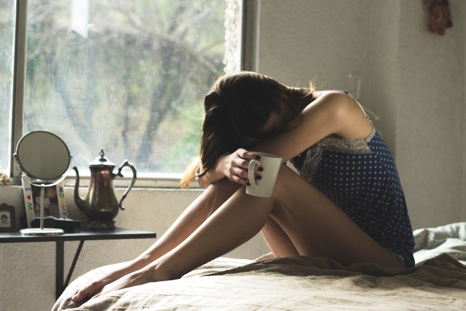In our most recent blog, we defined Seasonal Affective Disorder (SAD) and discussed the importance of prioritizing your mental health if you’re struggling with this form of depression, for both your own well-being and your family’s. If you find yourself dreading the winter months because of SAD, we’ve listed five ways to help combat these winter blues.
Substitute Sunlight
As stated, the sudden lack of sunlight is the primary culprit of seasonal depression. Luckily, there are ways that people can essentially substitute sunlight in their life. One example of this is a Light Therapy Box, a device that gives off a type of light that mimics sunshine. These boxes are significantly brighter than regular light bulbs and emit a different wavelength that can stimulate your body’s circadian rhythms, as well as suppress it’s release of melatonin. Another example of substitute sunlight is a Dawn Simulator, a type of alarm clock that gradually produces light in your room, just like the sun.
Exercise and Time Outside
You’ve probably heard it before, but exercise is an all-natural medicine to help with depression of any kind. A few benefits include sleep improvement, lower blood pressure, increased energy, and the release of chemicals called endorphins, which trigger a positive feeling in the body and mind. In addition to increased energy and mood, exercise can help offset weight gain, a symptom that is common with SAD and can lead to further feelings of discouragement. While the winter months may make outdoor exercise challenging, the treadmill or workout classes are a great alternative.
In addition to exercise, just making the time to be outdoors, even if it’s chilly, can help. As uncomfortable as it may be at times, exposure to what sunlight there is and interacting with outdoor elements can help lighten your mood. If possible, try to take these walks mid-day, around lunch time, when the sun is brightest. In addition to this, open up the blinds in your house every day to let sunlight in. It may seem like a small task, but natural light can have a huge effect on a person’s sense of happiness and motivation during the day.
Vitamin D and Aromatherapy
Due to less sunlight throughout the day, lower levels of vitamin D are often linked with seasonal depression. For this reason, Vitamin D supplements may be a helpful option to help combat SAD. While studies are still being carried out to understand how and if these supplements are as beneficial as some people think, but it should certainly be considered as an option. Talk with your doctor first and schedule a test to measure your vitamin D levels beforehand.
Aromatherapy can be a subtle but effective way of controlling your mood, your circadian rhythm, and your appetite. While they shouldn’t be relied on solely to help your depression, it’s believed they can help in the greater scheme of treatment options. These essential oils are made up of various plant parts, such as blossoms, seeds, leaves and roots, and it’s believed that the oils may trigger certain smell receptors in your nose that send messages to the part of your brain that control your mood. You can use these in a diffusion machine, as a room spray, in your bath, or as an oil for a massage.
Take a Vacation
If you know you’re prone to SAD, planning a mid-winter vacation can serve two great purposes: having something to look forward to, and of course getting away to a sunnier location. Travel not only gives you a break from your routine, but it can give you that sun therapy you may desperately be needing. Even if you’re only able to go for a few days, the excitement of a trip can lift anyone’s spirits before, during and even for weeks after.
Therapy or Antidepressants
As with any form of depression, if you feel like you’re not in control or understanding your emotions and could use a different perspective, therapy can be a great resource. Not only can it officially diagnose you with SAD if you’re displaying common symptoms, but it can help you work through both your feelings, as well as create positive steps that can be taken to help reduce negative effects.
If you’ve tried therapy and additional treatments, antidepressants could be a viable option. Be aware that some anti-depressants can make you sleepy, so be sure to talk with your doctor about all of your options before making any decisions.
If you’re suffering from SAD, take heart in knowing that there are steps that can be taken to counteract some of the symptoms. As Portland residents and family law attorneys, Pacific Cascade Legal understands better than most the adverse effects that accompany living in a rainy state, as well as how these weather changes can make a divorce or family death feel unbearable at times. We care about the mental health of all of our clients, which is why we have a wide array of resources, such as some of Portland’s top therapists and counselors, to help our clients overcome even the rainiest of days.

